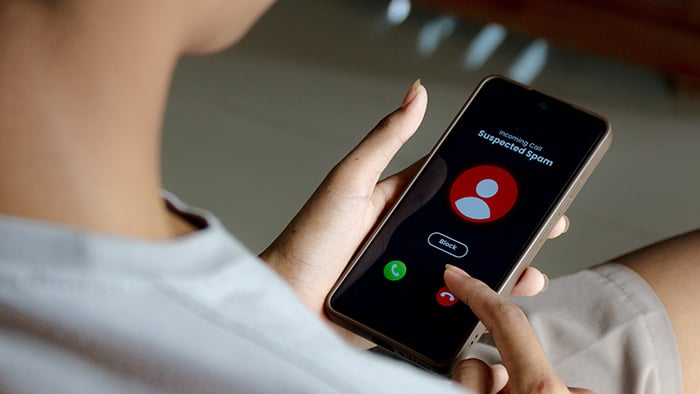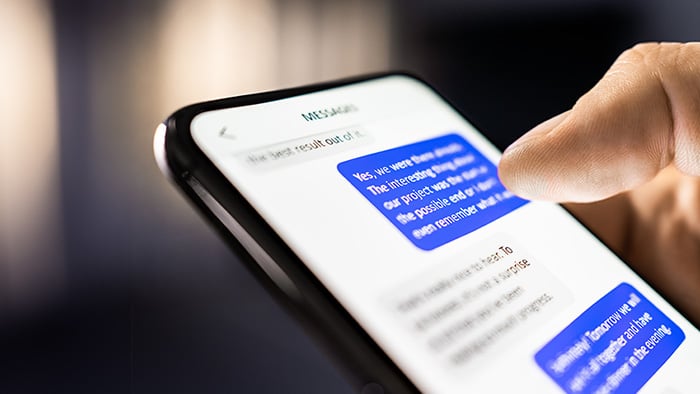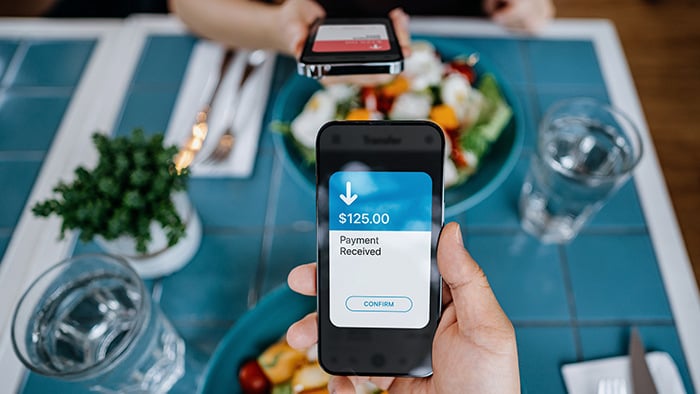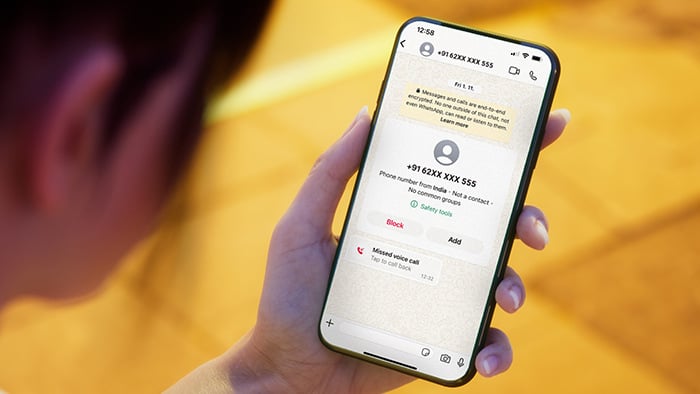How do gift card scams work?
Gift card scams begin by pressuring victims into buying a gift card. Then, scammers trick their victims into revealing the gift card number and PIN, which the scammers immediately redeem. Gift card scammers often gain their victims’ confidence by pretending to be someone else, such as a government employee, a family member, or a romantic interest.
Why do scammers want gift cards instead of credit card numbers? Gift card fraud is anonymous, nearly impossible to reverse, and gets immediate results. Fraudulent charges on credit cards can be canceled, but gift card charges can’t. Paying with gift cards is like paying in cash — once it’s gone, it’s gone for good.
Phishing is a common way for scammers to get enough details on their target to pull off a convincing scam. Scammers focus on popular platforms with lots of unsuspecting victims, and they change their approach depending on the audience. Apple ID phishing scams impersonate legit Apple employees, while Steam card scammers might pretend to be a lonely gamer in need.
Different types of gift card scams
Gift card scams can start with a phone call, text, email, social media message, or even a fake antivirus pop-up. They can also happen physically, inside brick-and-mortar stores. Many types of scams, such as tech support scams and romance scams, end up as gift card scams.
 Many types of online scams can end up as gift card scams.
Many types of online scams can end up as gift card scams.
The most common types of gift cards involved in scams are those issued by big companies with physical goods — such as Amazon, Target, eBay, or Walmart. But digital markets such as the Steam Store or Google Play Store are also vulnerable. Vanilla gift card scams, which go after VISA vanilla gift cards, are especially popular, because these cards are valid everywhere.
No market, and no mark, is safe from gift card fraud. Any gift card can easily be traded for cold hard cash (or cryptocurrency), and any consumer can easily be targeted, as scammers adapt to different prey. Different kinds of scams target different people.
Here’s the most common gift card scam types:
 Money collection scams
Money collection scams
The scam: A fake employee from the IRS or a utility company calls, texts, or emails you and says you owe them money. If you don’t pay them, they’ll arrest you or shut off your service. And they ask you to pay them by buying gift cards and giving them the gift card numbers.
How to avoid the scam: Governments and utility companies will never ask you to pay in gift cards, and they don’t directly contact people to ask for money. Instead, they send a letter with a number to call. Most governments and utility companies won’t threaten to arrest you or shut off service for not paying. If someone calls to collect, hang up and call the service’s official phone number to verify.
Tech support scams are similar scams in which someone poses as a technical authority or computer expert to trick a vulnerable target into paying. Scammers usually spoof (fake) their number so they can spam lots of people without being traced. Learn more about how to stop phone spoofing and how to stop spam text messages if scammers are bugging you on your mobile phone.
 Online auction scams
Online auction scams
The scam: On an auction site, scammers try to sell a fake gift card or a gift card with a low balance. You think you’re getting a good deal, but you’re really getting scammed.
How to avoid the scam: Any gift card sold in an auction is probably a scam. Avoid buying gift cards on eBay or other auction sites, even if they appear to be from legitimate sources.
eBay card scams are popular because they target people who are addicted to online shopping or tempted by a bargain. eBay card scams trick people into thinking they can flip an auctioned gift card into a product they have their eye on, but often the gift card code is invalid or there’s actually no money remaining on the card.
Fake gift card codes are impossible to tell from the real thing, and a fake Amazon gift card or a photoshopped picture of an eBay gift card can seem real if you're not paying attention.
Auction sites are also vulnerable to PayPal scams, where fake PayPal emails are sent to an auctioneer claiming money has been sent, but the funds won’t be released until the item's tracking number is given.
 Bot scams
Bot scams
The scam: Gift card scammers send malicious bots to scan a business’s gift card registry and drain active gift card balances. The scammers then buy products themselves or sell the balances off.
How to avoid the scam: Don’t activate a gift card unless you plan to use it right away. The longer an activated gift card sits in a website’s registry, the higher the chances that a bot may come along to steal it.
Apple gift card scams are a favorite of scammers who use bots, along with Google Play card scams, Steam wallet card scams, and other digital-marketplace card scams.
Scamming for physical products is more lucrative, but there’s a higher chance of something going wrong. Digital products don’t fetch as high a price, but they can be bought and sold quickly. A scammer can do a lot with a Google Play card or other digital card: use it themselves, sell it for cash, trade it for in-game items, swap it for cryptocurrency, or even trade it for information on the dark web.
 Cashier scams
Cashier scams
The scam: Cashiers activate your gift card and then hand you back an unactivated gift card. They then use the activated gift card themselves or sell it for cash. Another version of this scam can happen when you pay for something with a partially redeemed gift card. After handing your card over, the cashier surreptitiously swaps it for a fully redeemed card and then claims that there’s no balance left on your card.
How to avoid the scam: Keep an eye on cashiers and make sure your gift card is always visible during checkout. And remember roughly how much money is left on your gift card before using it.
Cashier gift card scams work well in big chains like Walmart with long lines, lots of transactions, and many employees. You can also run into cashier scams at malls or other places where one gift card can be used at many different stores.
 Magstripe reader scams
Magstripe reader scams
The scam: Scammers scan unactivated gift cards through a device called a magstripe reader, which stores the gift card numbers inside. The scammer then calls customer service with the numbers to learn the activation status and how much balance is left. If a gift card is still active, the scammer uses the card themselves or sells the number.
How to avoid the scam: Don’t buy gift cards off of racks of cards displayed publicly. It's easier for scammers to pick cards off these types of displays and run them through a magstripe reader. Instead, request a gift card from behind the counter.
 Damaged packaging scams
Damaged packaging scams
The scam: A scammer opens up a gift card to get the number, then repackages it, or scratches off the PIN code covering and replaces it with a sticker. When the card is activated, the scammer uses the number and PIN code.
How to avoid the scam: Examine the gift card packaging carefully. Compare it with other gift cards to see if it’s been tampered with. Don’t buy gift cards if you can easily see the PIN code or other information that should be hidden until purchase.
A simple picture of an eBay gift card or other type of card used to be enough to steal the number. Some companies have adapted by packaging gift cards more carefully, but scammers have also responded by learning how to open the packages discreetly and replacing the card.
If someone asks you to send them a picture of the back of an eBay gift card (or any other type of card), they'll copy the code and try to guess the hidden PIN.
 Fake prizes
Fake prizes
The scam: After winning a lottery or other giveaway contest, you’re asked to pay a processing or shipping fee with a gift card before the prize is released.
How to avoid the scam: You should never have to pay money to claim a prize you won legitimately, especially with a gift card. Pay attention to the sweepstakes or contests you’re entering, and read the rules carefully.
Giveaway scams work on people — especially the elderly — who sometimes can’t remember if they entered a contest. A lucky victim gets a Walmart giveaway text that claims they've just won a new iPhone, a $1,000 gift card, or a similar product. To redeem their prize, they simply need to provide their credit card or social security number. This is a path straight to fraud or full-blown identity theft.
If you get a text message for a Walmart giveaway or any other kind of sweepstakes you don’t remember entering, it’s almost certainly a scam. Look up how to report identity theft if you or someone you know has been a victim of a gift card hoax involving personal information.

 Romance scams
Romance scams
The scam: A scammer makes a fake profile or social media site and pretends to be romantically interested in you. Then, they claim to be having money troubles and ask you to buy them gift cards.
How to avoid the scam: No one with a legitimate interest in getting to know you will ask you for money before dating you. If the person lives far away, asks you for money immediately, or asks for specific payment methods, it’s likely a scam.
It’s difficult to spot a romance scam from the real thing, because romance scammers often move fast and their offers seem too good to refuse. Scammers asking for gift cards will also guilt trip you into not asking too many questions about why they need financial help.
 Fake gift card activation sites
Fake gift card activation sites
The scam: Scammers set up a fake gift card activation site similar to a real one to try to harvest your personal information. When you search for the activation site on Google, the pharming site pops up instead. After entering your gift card number and PIN to “activate” the card, the scammer steals your information.
How to avoid the scam: Don’t search for your gift card’s activation site. Type the URL from the information on the card directly into the address bar. That will keep you from stumbling onto a fake gift card activation site by accident. And always check if a website is legitimate before you enter any information.
It might seem better to learn how to activate a gift card without scanning it, but typing in your gift card information is riskier than someone physically scanning it for you.
What to do if you've been part of a gift card scam
If you’ve been a victim of gift card fraud, contact the company on the gift card right away. The company can add the scammer to a registry of known gift card scammer numbers, and they may be able to compensate you. Keep the card and the receipt handy, if you still have them.
How to report Amazon gift card scams: Call Amazon support at 1 (888) 280-4331.
How to report eBay gift card scams: Contact eBay customer support.
How to report Google Play Store scams: Contact Google scam support.
How to report iTunes or Apple gift card scams: Call Apple Support at 1 (800) 275-2273. When prompted, say “gift card” to speak to someone about a gift card scam.
How to report Steam card scams: Go to Steam support, then choose “Purchases,” and “I have purchases from Steam that I didn’t make.”
How to report OneVanilla prepaid card scams: Call VISA Vanilla Card customer service at 1-800-571-1376.
You can report any internet scam you come across, not just gift card scams. Over time, reporting scams helps everyone to avoid fraud. If you’re in the US, officially report scams through the US government's fraud-reporting website. If you’re in the UK, use the UK government’s fraud-reporting site.
How to avoid gift card fraud
The first way to avoid gift card scams is to buy only from retailers you trust, and avoid buying gift cards secondhand or from auction sites. When you do buy a gift card, read the terms and conditions, and keep track of your receipts.
Here are the dos and don’ts for avoiding a gift card scam:
|
Do's
|
Don'ts
|
|
Buy only from trusted stores and sites.
|
Trade gift cards for goods or services from strangers, or accept gift cards as payment from someone you don’t know.
|
|
Activate the card in person if you can.
|
Pay extra fees with gift cards for something you won or were given.
|
|
Check the card’s packaging for tampering.
|
Pay bills in gift cards, even if they seem legitimate.
|
|
Compare physical gift cards to ones you know are real.
|
Reply to strange texts, emails, or calls regarding gift cards.
|
|
Keep your gift card receipts.
|
Activate your gift card before you’re ready to use it.
|
Avoid gift card fraud with Avast
The first step to avoiding gift card fraud is keeping your details away from scammers who want to target you. If your sensitive info leaks, it’s only a matter of time before scammers come knocking — or calling, texting, and emailing.
With Avast One, you get ironclad privacy protection to stop companies from collecting your data and losing it, strengthen your passwords so no bots can wriggle through, and remove your details from the dark web. Avast One also monitors for data leaks 24/7, so you can act immediately in case you’re caught up in a breach. Get Avast One today to keep your information private and protect yourself from scams.



 Many types of online scams can end up as gift card scams.
Many types of online scams can end up as gift card scams.











